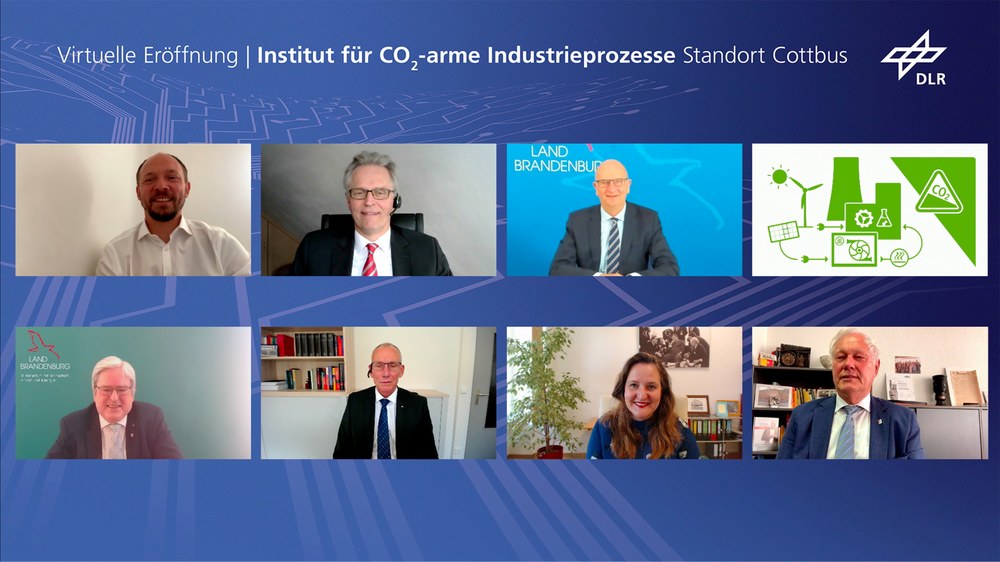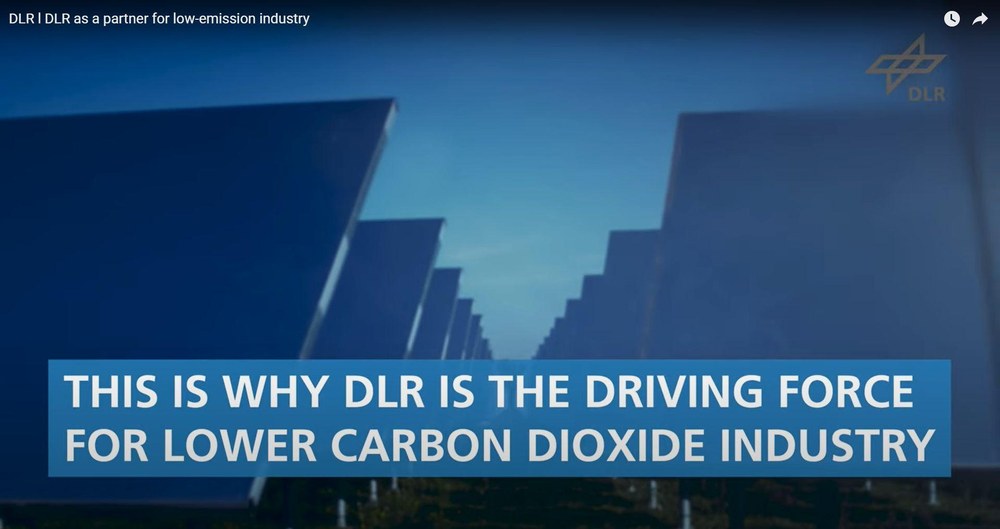DLR opens institute of Low-Carbon Industrial Processes in Cottbus



- Alternatives to fossil fuels will make production in key industrial sectors more environmentally friendly.
- Scientists will test different scenarios using high-temperature heat pumps.
- Close cooperation with universities and industry.
- Focus: Energy, sustainability
The decarbonisation of industrial processes is hugely important for climate protection, as many industries still depend on fossil fuels to generate process heat or to meet their energy needs. This creates carbon dioxide (CO2), which is harmful to the climate. The Institute of Low-Carbon Industrial Processes of the German Aerospace Center (Deutsches Zentrum für Luft- und Raumfahrt; DLR) is researching alternatives to fossil fuels, with a view to making production in key industries more environmentally friendly. The Institute's Cottbus site in Brandenburg was officially opened on 10 May 2021. The new Institute will focus on the simulation and virtual design – 'digital twinning' – of modified production processes. Alongside that aim, it will also focus on the development of high-temperature heat pumps. A second institute site is also being set up in Zittau, Saxony.
"At our new Institute in Cottbus, we are working on solutions for the economically viable transformation of industrial and power plant processes into low-carbon technologies. This makes DLR an important partner in the Lusatia region, not least when it comes to coping with the regional challenges posed by structural change. We are creating the future here through research and innovation," said Anke Kaysser-Pyzalla, Chair of the DLR Executive Board, at the opening event, which took place virtually due to the COVID-19 pandemic.
Rapid knowledge transfer for industrial applications
The new institute will enable the DLR is expand its expertise in the field of energy research, while supporting structural change in Lusatia. The Institute of Low-Carbon Industrial Processes works closely with Brandenburg University of Technology Cottbus-Senftenberg (BTU) and Zittau Görlitz University of Applied Sciences. It also has partnerships with companies in the region. DLR is active in promoting the transfer of knowledge so that its research findings can be applied in industry.
"Modern industry, well-paid jobs and climate protection all go hand in hand. We intend to demonstrate this through structural development in the Lusatia model region. The opening of the DLR Institute of Low-Carbon Industrial Processes in Cottbus today marks a very important milestone. The establishment of this top-class research facility close to Brandenburg University of Technology Cottbus-Senftenberg will strengthen the research landscape throughout the entire region. Moreover, as befits a model project of this nature, the Institute's research findings and expertise will also be made available for projects throughout the state of Brandenburg and beyond. I would like to thank everyone who has contributed to us taking another major step today towards the implementation of our future concept 'Lusatia 2038'," said Dietmar Woidke, Minister President of the Federal State of Brandenburg. "Structural change can only succeed within a strong research and science environment and an innovative economy that creates good, well-paid jobs in the region. I am certain that the new DLR institute, together with its industrial partners, will help to develop a European model region for a climate-neutral economy."
Some 60 employees will work at the Cottbus site, around half of whom are already there. Together with universities and industry, DLR is helping to retain specialist knowledge within the region and secure jobs. The Institute of Low-Carbon Industrial Processes is currently located on the BTU premises, with a new building set to be constructed near the university by the middle of the decade.
Construction of a test facility
A test facility is already being installed in a rented hall. Scientists will develop and test different operating scenarios using a high-temperature heat pump on a pilot plant scale. Gas is to be used as the working medium in Cottbus. In Zittau, research will focus on steam-based heat pump components. High-temperature process heat is required in the food, paper, chemical and vehicle construction industries, to name but a few. The environmentally friendly high-temperature heat pumps that the DLR is testing could be available for initial sectors within a year, as the Institute's research is now well advanced for a range up to around 300 degrees and is being intensified in Cottbus and Zittau.
"As the representative for the new federal states, I am delighted that the Cottbus site of the DLR Institute of Low-Carbon Industrial Processes is now open. This DLR Institute is another example of the excellent scientific landscape offered by the new federal states. Together with the Zittau site, it can make a real contribution towards the low-carbon industries of the future," said Marco Wanderwitz, Parliamentary State Secretary at the Federal Ministry for Economic Affairs and Energy and Federal Government Commissioner for the New Federal States. "As part of the industrial strategy of the Federal Ministry for Economic Affairs and Energy, low-carbon industrial processes are vital to the future of industry in the federal states, both new and old. They not only support the energy transition, but also positive structural change within regions, especially in the new federal states, where industry is still the most important driver of economic development."
'Digital twins' simulate the networking of energy systems
Alongside the research taking place within its test facility, the DLR Institute is also developing models and software that can be used to map and scientifically investigate industrial processes. 'Digital twins' of real systems can be created in this way. These can provide insights into how renewable energy sources can replace fossil fuels.
Such virtual models will also show how it is possible to compensate for a fluctuating energy supply. The establishment of an intelligent network is essential for the energy transition, which will require solar and wind energy sources, power plants, storage systems, residential and public buildings and industrial plants to be networked with one another. Therefore, the simulation environment created at the Institute of Low-Carbon Industrial Processes is also intended to demonstrate low-loss and cross-structural distribution of electricity, heat and raw materials.

DLR as a partner for low-emission industry
Your consent to the storage of data ('cookies') is required for the playback of this video on Youtube.com. You can view and change your current data storage settings at any time under privacy.
